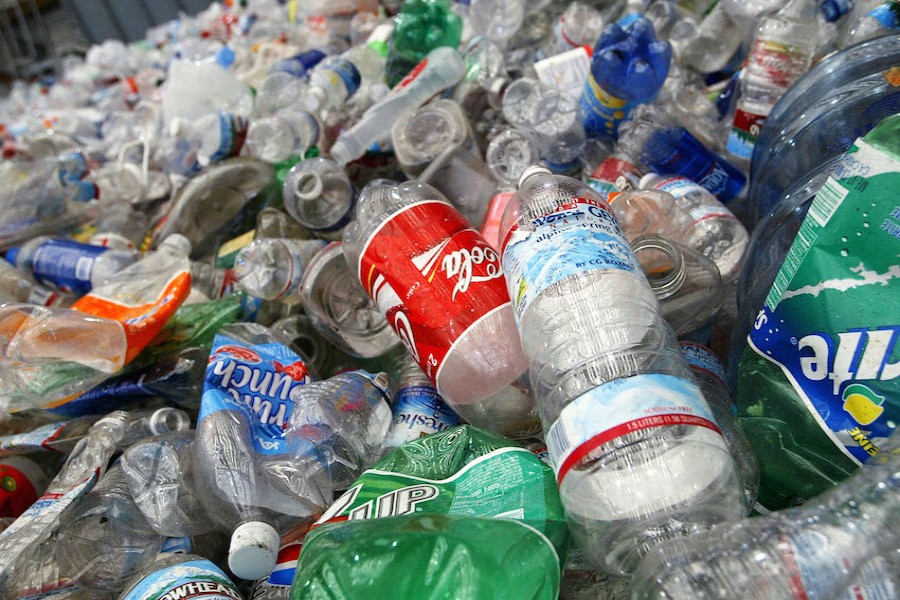
Published :
Updated :

The bad news is that people around the world have dumped an estimated 8.3 billion metric tonnes of plastic on the planet. Half of this huge plastic trash has been thrown away since 2004. The good news is that a mutant enzyme, produced accidentally by scientists in a laboratory, is devouring plastic at a pace faster than anything of its kind. By the time aggressive encroachment of plastic has reached as far as the bottom of the seas. If the plastic garbage continues to accumulate at the present rate, the material will be more than fish by weight in the oceans by the year 2050.
When the global plastic pollution is so precarious, the situation in Bangladesh is no better -if not worse. With a small geographic area, this land is likely to face a problem where polythene and plastic will spare hardly any space for farming and fish breeding. The country's plastic industry is quite vibrant now and all set to make an inroad in foreign market. If the growth of the industry is good for economy and employment, it is certainly not so for the fragile environment of the country.
One answer to the problem is recycling but then there is a limit to the reuse of the substance. That the process of recycling is getting encouraged is because there is an overriding need for finding yet another means of livelihood for some with profits guaranteed. The plastic trash is collected at the field level, sorted out, cleaned, broken into shreds for reuse in the industry. All this is accomplished on private initiatives simply because of the economic value.
Yet it must be admitted that only a fraction of the rejected plastic bottles, utensils, toys and furniture gets collected but the larger portion finds its way into drains, canals and rivers. Sea beaches and the sea proper also have to bear with such rejected plastic packets and bottles by tourists and crew of ocean-going vessels, which ultimately accumulate on the seabed. So recycling cannot quite deal with the enormous amount of plastic materials produced for daily use. Convenience, health and hygienic considerations have opted for one-time pots, packets, glass and dishes. But this new fad had overlooked the most important issue of environmental pollution by the huge piles of rejected plastic.
There is a need for a thorough study on the country's plastic industry in order to see how much of the refuse gets accumulated on a daily basis. This can determine the limit the country can afford in terms of production and use of plastic materials. The aim should be to collect at least 90 per cent, if not more, of the plastic trash for recycling.
So long as the latest mutant enzyme with an insatiable appetite for plastic does not reach the field level for wide use for bio-degradation of plastic, recycling is the only option open to this country. Scientists had discovered an enzyme called PETase earlier and with the introduction of a mutant to this the result was spectacular. The new enzyme breaks down plastic much faster and highly efficiently. Its dramatic increased appetite for devouring plastic is what has actually made scientists optimistic about taking care of plastic in a more environmentally friendly way.
However, countries like Bangladesh cannot wait for the time lag required for the technology to take shape for application at the industrial or field level by common people the world over. This country should, therefore, formulate a policy on the plastic industry. It must not go for a production base beyond its control in terms of managing affairs. Sure enough, its contribution to economy and employment cannot be ignored but at the same time it has to be ensured that the production process complies with environmental regulations. Safety, health and hygiene concerns for workers have been grossly compromised in such work places. The policy should be specific about all such issues.
So far as the polythene bags are concerned, the country has shown unpardonable indifference to its use. Officially banned the material has come back and the authorities look the other way. If it could be banned once, it can be done so now — particularly when its viable alternative has been developed from jute in the country's premier jute mill. Not only is that ultra-thin sheet more durable but far better in all respects so far as its performance is concerned. Hopefully, this invention will make the use of polythene bags and packages redundant. But the several layers of this material accumulated in lands and on riverbeds of Bangladesh have already posed a great threat to the environment.
Scientists must look for the option of using the mutant enzyme in future for total degradation of polythene accumulated in the soil or in water. These two developments -one on the home front and the other in the laboratory of the United Kingdom - hold the prospect of efficiently dealing with the twin problem of plastic and polythene. These should be considered blessings for not only Bangladesh but also for the entire planet.


 For all latest news, follow The Financial Express Google News channel.
For all latest news, follow The Financial Express Google News channel.